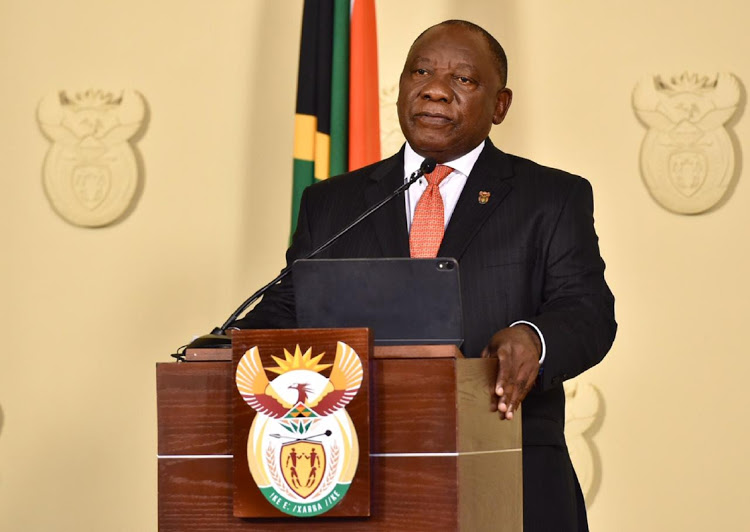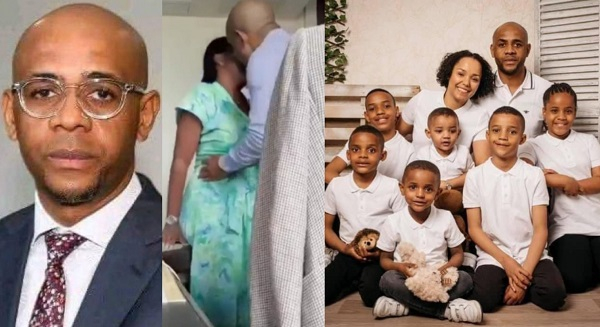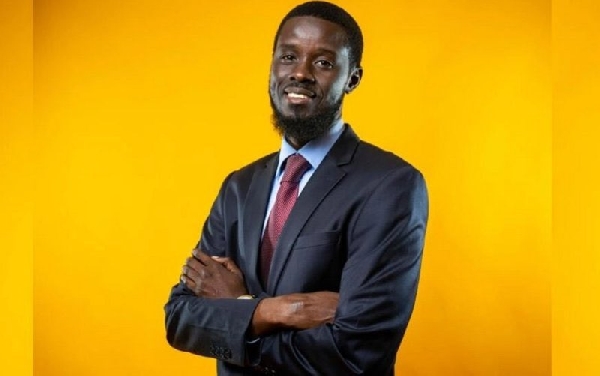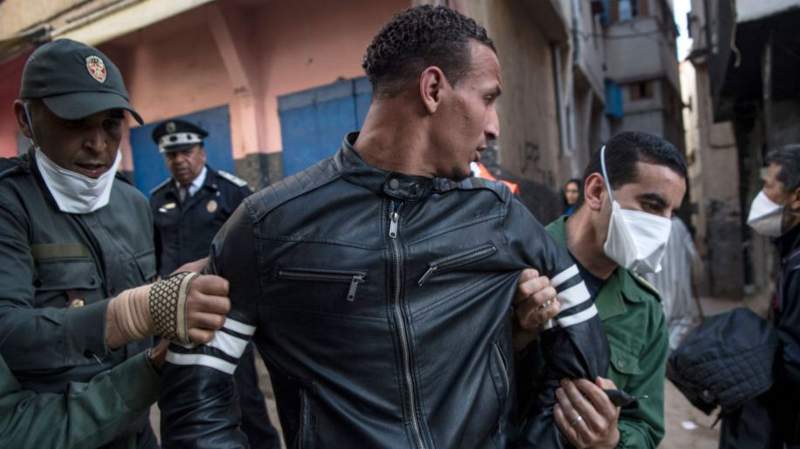News Africa
Russia engages Senegal at the West African Frontline
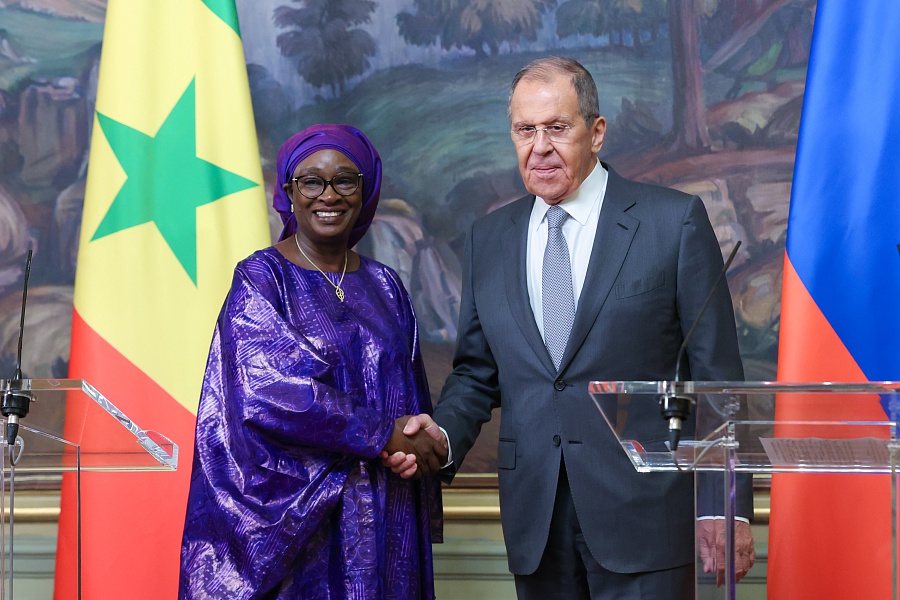
Russia and Senegal have renewed their commitments relating to fortifying Russia’s military presence aims at fighting threats of extremism and frequent attacks that have, over the years, engulfed West African Sahel region. What is often referred to Sahel- Saharan region is a desert landscape and stretches from East Africa through the Savanna region to the Atlantic coast of West Africa. But the central focus for Russia’s military operations is directed against the armed Islamic jihadist groups (some of which are reportedly aligned with Al Qaeda and ISIS) in West Africa.
Russia has expressed its readiness to provide assistance to African countries in bolstering their defense capabilities and improving their anti-terrorist preparedness, Russian Foreign Minister Sergey Lavrov said on August 29. “Russia is ready to assist Senegal and other African countries in strengthening their defense capabilities and improving the anti-terrorist readiness of their armed forces and special (military task) services,” Lavrov said speaking at the joint press conference with Senegalese Foreign Minister Yacine Fall.
During their closed-door bilateral meeting and as disclosed during the joint media conference held in Moscow, Lavrov noted that Russia was seriously concerned about the growing terrorist threat in this part of the continent, coming from the affiliated with the Islamic State (IS) and al-Qaeda organizations (both banned in Russia under the state law). The Islamist groups keep spreading their influence and activities to the countries of West Africa, including Senegal’s neighboring countries, Lavrov, who is Russia’s top diplomat, noted, and added: “We share a common interest to join efforts in the fight against these threats in West African region.”
Many policy experts say Russia has its own distinctive style and approach, set out to battle against tremendous growing ‘neo-colonial tendencies’ mostly exhibited by the Europeans, particularly France. In the case of French-speaking African countries under microscope here, it involves Burkina Faso, Mali and Niger – and these countries have created a new defense pact called the Alliance of Sahel States. The pact commits each country to come to the others’ aid in defense of their territorial integrity both from internal and external aggression. More or less, Senegal has aligned with the make up the new alliance to its political and military visions.
In addition, Senegalese administration seriously considers the future of having a multifaceted economic relations, recognizable investment and development of infrastructure in the country. That makes it utterly necessary to engage Russia in development decision-making processes and use available resources to improve the country. Senegalese Foreign Minister Yassine Fall explained, for instance, that “Russian investors have the possibility contribute to development of Africa, and particularly in Senegal.” She further underlined, without mincing words, that Russian businessmen might invest in energy, oil and gas and food sectors of Senegal’s economy. She also called concretely for mutually beneficial cooperation in the sphere of mineral fertilizers and exchange of technologies.
The ICT sector holds a lot of promise as well. Yandex set up a taxicab service company YanGo in Senegal, its first digital service in that country. There are other opportunities in the ICT sector as well which were discussed in Marrakesh in May at a conference of African countries with the participation of Russian partners from this sector. Russian experts may be involved in creating an e-government system in Senegal and other African countries.
In July 2024, a permanent trade and investment chamber, Africa-Russia-Eurasia, started operating in Dakar. Russia is now one of the largest suppliers of oil products to Senegal’s market. Negotiations are underway to supply Senegal with fertiliser, flour and wheat directly. At the moment, such supplies are made through intermediaries, which makes them less effective. Besides that however, both have agreed to speed up the establishment of an intergovernmental trade and economic commission.
With the establishment the Africa-Russia-Eurasia trade and investment chamber in July which is a promising format for governments to help business circles directly discuss promising projects. As a first step, Russia-Senegal business forum will take place in Dakar this October 2024, and many Russian major companies plan to participate. The agenda is specific and holds a lot of promise.
The developments in the African continent, above all in the Sahara-Sahel region, including the situation in Mali, Burkina Faso, Niger and Chad. Russia is seriously concerned about the growing threat of terrorism in that part of the world. Islamist groups affiliated with the Islamic State and al-Qaeda are gradually and steadily spreading their influence and activities to West African countries, including Senegal’s neighbours. “We have a common interest in joining efforts to combat these threats. Russia is ready to assist Senegal and other African states in strengthening their defence capabilities and improving the anti-terrorist readiness of their armed forces and special services,” according to Lavrov.
According to various reports monitored by the author, Senegalese Foreign Minister’s official visit underscored the fact that Russia is broadening its geography of diplomacy covering poor African countries and especially fragile States that need Russia’s military assistance. The ministers exchanged views on key issues on the global and African agenda. Then, there was a common viewpoint featured in favour of political and diplomatic methods of resolving crises in Africa, given the decisive role of Africans themselves and with the assistance of the international community.
Undoubtedly, Russia generally recognizes the fact that these West African Sahel countries are endowed with enormous resources, but are currently among the world’s poorest economies with large impoverished population, according reports by the United Nations Development Index (2023 report). With an estimated population of 18.5 million people, majority lives on the coast and works in agriculture or other food industries; other major industries include mining, tourism and services. In terms of governance, Senegal finished in 12th position on the Ibrahim Index of African Governance. Democratically-elected Bassirou Diomaye Faye is the 5th and current President of Senegal since April 2024, replacing Macky Sall.
Senegal in among majority of African countries with multiple development setbacks combined with deep-seated corruption and weak system of governance. Natural resources are badly managed, reflecting on the low level of living standard. In spite of that, Russia adores the aspirations of the African Union, consistently remarked ‘African problems, African solutions’ which explicitly indicates the reawakening of African leaders to find sustainable pathways to contemporary development problems across the African continent. It follows that Russia would genuinely support as it did during the Soviet times, this time within the framework of ‘mutually-beneficial terms’ as stipulated in bilateral agreements. It also ascribes to barter system, complete access to exploration natural resources in exchange for military supplies and for the service of maintaining regional security.
Beyond Burkina Faso, Mali and Niger, it’s clear Russia has found a new home in West Africa. That makes it utterly necessary to engage Senegal, strengthen political dialogue and design smooth ways of investing in the economic sectors. But the most important factor here is Senegalese leaders must necessarily make conscious steps to prioritize their national sustainable development goals and have to understand the basic principle through which they were elected: the electorate and the people, and their basic needs related to development. These are the drivers of the expected lasting change needed in Senegal, one of the aspirations after the logical exit of French-manipulated and controlled, and the corrupt regime headed Macky Sall. That was another closure to a historical era in Senegal.
In conclusion, it explicitly follows that the late August Russian-Senegalese bilateral meeting was an opportunity to deepen longstanding partnership and to focus on new emerging economic and security areas. The discussion took cognizance of existing geopolitical challenges and specific barriers hindering smooth friendship, ways of strengthening and advancing shared economic priorities, and defining opportunities for building sustainable relations into the future. Bordered by Mauritania to the north, Mali to the east, Guinea to the southeast and Guinea-Bissau to the southwest, Senegal is situated on the Atlantic coastline.
Source: Thepressradio.com| Kestér Kenn Klomegâh


